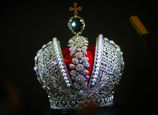
 |
| (Xinhua Photo) |
Only after arriving at Northern California did Ms. Wang find out that the two half-blooded sisters of her husband were also staying outside in a hotel. In strong contrast, when the couple went to visit Ms. Wang's parents in China before the wedding, "no matter how squeezed the house is, my parents would never let us move out and live in a hotel. And they always want us to stay longer."
It is an indispensable part of the later life of Chinese parents to help their children to look after their children. But this is not the case for American mothers-in-law, either. Casey is an ethnic Chinese. The first baby of her and her husband is already three years old. But through the child's birth to growth, "My mother-in-law can never be counted on. The burden falls completely on my mother, who runs back and forth from China to America to look after the baby for me," she said. “When my mother-in-law comes to see her grandson, she would only hold the baby and fiddle for a few minutes, and say ‘You are so cute’ before putting him down and minding her own business. “
What disturbed Casey the most is that in 2011, when she was in Florida on business for three days and her husband was in Japan due to work; her mother's visa expired and need to go back to China. Under such circumstance, she could only ask her mother-in-law to look after the baby. But she readily refused and said: "The baby would disturb my sleeping. You can take him with you." Casey could not restrain her anger, "As if this is not her grandson at all."
When Casey talked with some of her Chinese girlfriends who also married Americans, one of her friend complained about her similar experience with her American mother-in-law. It was the wedding anniversary for her and her husband and they wanted to relive the past romance. But the mother-in-law refused to help for her son and daughter-in-law looking after the child for the excuse that she had made appointment with someone to play bingo. In the end they had no choice but pay the daughter of their neighbor 60 dollars to look after the kid for them. "I still cannot understand such family relations in the United States even till now."
The misreading and misunderstanding because of the language difference can also turn Chinese daughters-in-law on against their American mother-in-law. Ms. Xu lives in the South Bay. At the weekend, she went to the mother-in-law's house to wrap Christmas presents together. Her mother looked at the label when wrapping one of the toys and suddenly said to Ms. Xu, "Oh, Made in China".
Ms. Xu thought her mother-in-law meant things "made in China" are all cheap and of poor quality, so she immediately retorted: "No one is forcing you to buy Made-in-China. You can buy Made-in-America." The mother-in-law froze for a moment and explained right away that she was just joking. At dinner, the mother-in-law again reiterated to Ms. Xu that her words were just a joke and asked her not to be serious about it. But the atmosphere of the family gathering was inevitably embarrassing throughout the night.
Another Chinese daughter-in-law, Jasmine, who just gave birth to a hybrid daughter in October 2012, also nearly started a war against her mother-in-law due to language misunderstandings. Jasmine said, when her mother-in-law came to visit the granddaughter, she called herself "mama". When Jasmine heard this, she strongly protested and said "You are the grandma. I'm the mama!" But her American mother-in-law insisted that "mama" is indeed an intimate way to address "grandma". The relationship between the mother- and daughter-in-law immediately turned a bit unpleasant. After Jasmine searched on the Internet and found out that "mama" is really the nickname some Americans call the grandma, she immediately went and apologized to her mother-in-law.
Read the Chinese version: 华人媳妇杠上美国婆婆
Source:People's Daily Overseas Edition, author: 骆舒娴.

















 Moments that melt your heart during the Spring Festival travel rush
Moments that melt your heart during the Spring Festival travel rush


![]()
